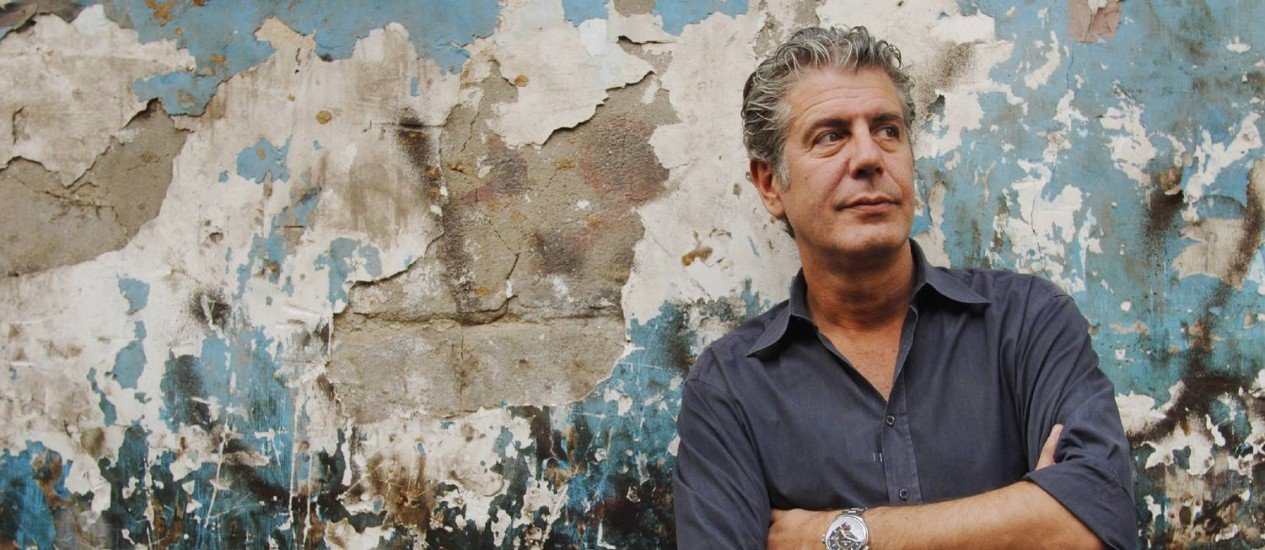“I Was So Supremely Naïve,” Medium Raw: A Bloody Valentine to the World of Food and the People Who Cook by Anthony Bourdain
Written by Kristy Dolson
The customary summer advice is to take up a little light reading. But I’ve been in an introspective mood this summer, and this month I have a few personal confessions.
First confession: I was only vaguely familiar with Anthony Bourdain’s travel shows. A former co-worker recommended the Korean episode of No Reservations to me during my second year in Korea. I watched it out of curiosity and admired his enthusiasm for the strange food mixed with his blithe coolness towards local popular culture. I haven’t seen any of his other various TV appearances since then.
Second confession: I’m not a foodie. I don’t follow the world of food, I don’t recognize the names of most celebrity chefs or their flagship restaurants, and I certainly didn’t know Bourdain was also a celebrated author among them. If the foul-mouthed-chef-turned-TV-host hadn’t chosen to end his own life this past June, I may never have sought out his memoirs.
And so my reading experience of Medium Raw: A Bloody Valentine to the World of Food and the People Who Cook was edged with the grief and sadness that comes from discovering greatness a little too late. Medium Raw is Bourdain’s second, mellower, wiser – but no less visceral and searing – memoir. His first memoir and surprise bestseller, Kitchen Confidential, may have brought him the notoriety that granted him his childhood wish to travel the world, but his second foray is a far more intriguing and engaging journey.
This book is all about taking a step back and seeing things from a new perspective – and acknowledging this with humility and honesty. Bourdain examines the changes to his life and lifestyle in the decade of fame that followed the success of his first memoir. He never expected, nay, intended, that book to be read and adored by such a broad readership. He insists that it was written for people like him: the line cooks and chefs who slaved away in the kitchens of New York City. But amid the almost-apologies given out to people he’d previously lambasted, and the hero/villain categorizing of the food world intended for a more general audience, the ex-chef fills his readers in on what came after commercial success. It wasn’t all good.
Third confession: This memoir moved me in a profound and peculiar way. From start to finish, I was totally entranced by Bourdain’s singular voice and his unique perspective on the world, humanity, and the realm of food. If you’ve seen his shows, you already know that he was an exceptional storyteller. It should come as no surprise that his thought-provoking book is both reverent and irreverent. When he warms to his subject in any given chapter, there’s absolutely no stopping him. But there are also moments of sweetness, and vulnerability. And it’s those moments when the reader glimpses through the celebrity status, the rage-filled ex-chef, the recovering drug addict, and sees a man who’s spent his life trying to fill a void in himself by any means necessary.
When the news of his death hit social media, there was an outpouring of tributes and memorials lamenting the loss of a person who wasn’t afraid to stand up and be loud about exploring the world, trying new things, and acknowledging your weaknesses while expanding your knowledge, skills, and empathy in the process. He may be gone, but we’re still here. In a world that’s increasingly heating up, dumbing down, closing off, and yet constantly on, we must remember the astuteness and struggles of Anthony Bourdain.
We can’t let the bastards win.
The Author
Kristy Dolson lived in South Korea for five years before taking a year off to travel, read, and spend time with her family in Canada and Australia. She holds a Bachelor of Education and has just moved to Yeosu, where she splits her time between teaching at the new Jeollanamdo International Education Institute and reading as much as she can.





